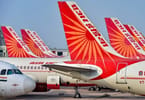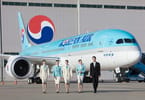The economic crisis has shifted priorities for many hotel companies, but Accor Asia Pacific sees opportunities out of the current economic turmoil. According to Ray Stone, Senior VP Sales & Marketing Asia Pacific, Accor is adding 40 to 55 hotels per year in the region on average.
“We are the largest international chain in Asia Pacific with a portfolio of almost 400 properties representing over 75,000 rooms. And we are further growing by adding 50 to 60 hotels per year in the region,” explained Stone.
Accor Asia Pacific is especially present in China with over 80 properties as well as Indonesia and Thailand, both countries having some 40 Accor hotels. According to Stone, Accor Asia-Pacific will continue to focus on China and India – two major growth engines according to Ray Stone – as well as Indonesia and Thailand.
“China is our largest market with over 80 properties. We feel bullish about India, as rising disposable income for Indians stimulate the demand in all travel segments. We currently have five properties, but we plan to grow our portfolio to 50 properties by 2012. Next year alone, we will add seven properties,” added Stone. India should then be on par with Thailand or Indonesia, which should also have some 50 properties by around 2012.
The chain also is looking to expand its brand further in the Philippines, Cambodia, Vietnam, and Malaysia. Accor in Vietnam is quickly building up its presence all across the country. By 2011, over 20 hotels should bear an Accor brand. By the start of the next decade, Vietnam should have 20 Accor hotels. Accor so far has faced the biggest difficulties to expand in Malaysia where the hotel group runs only five properties including three new hotels with the Pullman Putrajaya, the Novotel Kota Kinabalu, and the future Novotel Kuching. According to Stone, Malaysia will see more developments over the years to come, especially in regional cities.
“There is a demand for branded high-quality hotels in places such as Johor Bahru, Melaka, Penang, Langkawi, or Ipoh. All Seasons, Ibis, or Mercure/Novotel would be perfect products in Malaysia’s regions, while we still look for a location for a luxury, up-market brand in Kuala Lumpur,” Stone continued.
“We take the current crisis as an opportunity to strengthen our presence and anticipate new trends. We never had so many inquiries than today for our brands,” explained Stone.
For the senior vice president, the strong branding for Accor and its high-profile positioning in Asia, is now perceived as an opportunity for struggling hotel companies and investors, which are looking to consolidate their investment. Stone sees a further need from regional cities to get their international branded hotel. “Secondary cities are eager to get a brand hotel as it brings them awareness worldwide. And a presence in secondary markets helps us to feed our main markets such as Jakarta or Bangkok,” he said.
As Accor reshaped its portfolio of brands with the repositioning of Sofitel, the expansion of All Seasons, or the introduction of M Gallery and Pullman, it offers a wide range of properties covering any market segment. “For example, we repositioned Sofitel into our top luxury brand with a very exclusive touch. We started 18 months ago and the reshaping has translated into a reduction of total Sofitel numbers, as some of the properties did not match our positioning. Some of these hotels are now either M-Gallery or Pullman,” added Stone.
In the current slowdown, the Pullman brand appears as a successful concept. Hotel owners and developers are looking for contemporary hotel brands that are appealing to the modern traveler both in price and comfort. According to the senior VP, Pullman matches perfectly this concept with a high-quality and affordable product, which does not request unaffordable investments. “Pullman is expected to become a very strong brand in Asia with some 100 hotels by 2015,” he estimated.
Stone predicts also a strong development for Ibis. “There is an increasing demand for a good mid- to moderate-price product, and Ibis fits perfectly in many markets, giving a chance to Accor to get awareness all across Asia,” said Stone. The Ibis concept has been revamped with a flagship hotel being opened early this year in Singapore. With bedrooms offering lots of lights and decorated in a contemporary minimalist style, free Wi-Fi in rooms, a trendy restaurant, and a funky lobby, the Ibis Bencoolen in Singapore is likely to seduce both travelers and hotel investors. In fact, Ibis was just selected for a new location on Hong Kong Island, at Des Voeux Road, in the midst of the business district. Due to open in 2012, the hotel will be the largest of its kind in Asia with a total of 550 rooms. Ibis is already present in 82 cities in Asia Pacific, including 42 in China.
WHAT TO TAKE AWAY FROM THIS ARTICLE:
- As Accor reshaped its portfolio of brands with the repositioning of Sofitel, the expansion of All Seasons, or the introduction of M Gallery and Pullman, it offers a wide range of properties covering any market segment.
- “There is an increasing demand for a good mid- to moderate-price product, and Ibis fits perfectly in many markets, giving a chance to Accor to get awareness all across Asia,” said Stone.
- For the senior vice president, the strong branding for Accor and its high-profile positioning in Asia, is now perceived as an opportunity for struggling hotel companies and investors, which are looking to consolidate their investment.






















